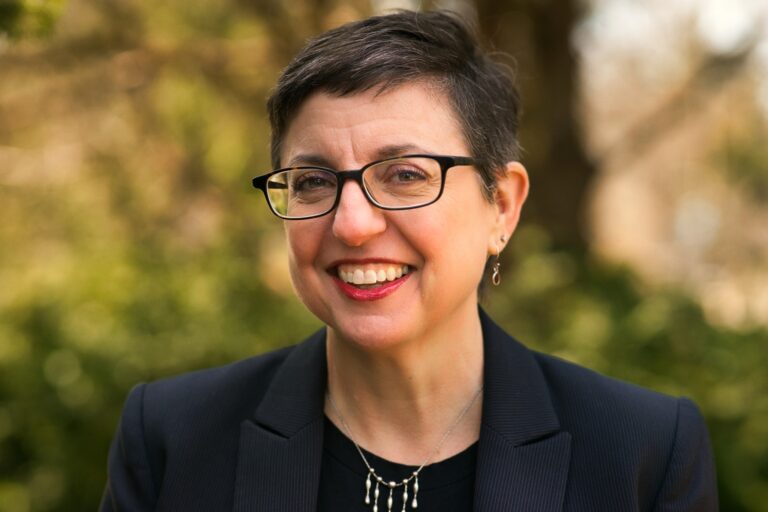The Department of Romance and Classical Studies congratulates Dr. Meagan Driver on the publication of her recent article, “‘Mentor, friend, teacher, and learner’: The beauty, opportunities, and challenges of heritage speakers as heritage language educators” in the September edition of Applied Linguistics, one of the leading specialized journals on applied linguistics. As its name suggests, this scholarly review publishes the fruits of research in a number of linguistic subfields focusing on the ways language is used; second-language acquisition, heritage speakers, multilingualism and more.
Read the article at: https://doi.org/10.1093/applin/amae055.
In their piece, MSU’s Prof. Meagan Driver and co-author Dr. Gabriela DeRobles (Univ. of Colorado–Denver), take a long look at an often-overlooked group of instructional professionals: heritage teachers of language. The authors examine the unique strengths, challenges and needs of teachers who have grown up speaking a language they later teach to others. Drs. Driver and DeRobles then go on to consider how to foster support for and empower these teachers.


The article fills an empty space in heritage language acquisition studies; previous research has generally focused on non-heritage teachers of heritage students. Yet heritage teachers themselves often exercise their profession in an uncommon educational context, which offers special advantages and produces unusual challenges. Dr. Driver points out that many of these instructors grow up themselves in families that can be ill-prepared to support heritage language instruction. There can be several reasons for this, from ideological preconceptions about language, to poor access to the education system or simply being engrossed in other work. But since there are always a lot of heritage students who could benefit from the expertise and example of heritage teachers, there is clearly a need to raise awareness of their needs and support their professional development.
Driver and DeRobles focus particular attention on US heritage teachers of Spanish, but their paper looks at many different heritage language teachers: those teaching Farsi, Russian and more. The educators they study also vary by the level of students they teach, from kindergartners to college seniors.
Prof. Driver says she hopes the results of this research will have an impact on a number of different readers. Of course, she and Prof. DeRobles would like their message of support to get to heritage teachers themselves. But they also aim to encourage heritage speakers who may not be teaching now, but might in the future. Just as importantly, the authors would like to reach the educational administrators who train heritage teachers and fund the language programs they work for. The authors hope the research might lead to more participatory action, research and planning.
On a more personal level, Dr. Driver expresses a lot of satisfaction in this piece because it starts a conversation about issues that are important but not often brought to the fore. Moreover, she emphasizes how rewarding it was to work with friend and co-author Gabriela de Robles. As a teaching professor at a Hispanic-serving institution (the University of Colorado–Denver), Prof. DeRobles’ provided invaluable hands-on knowledge, practice and research experience.


